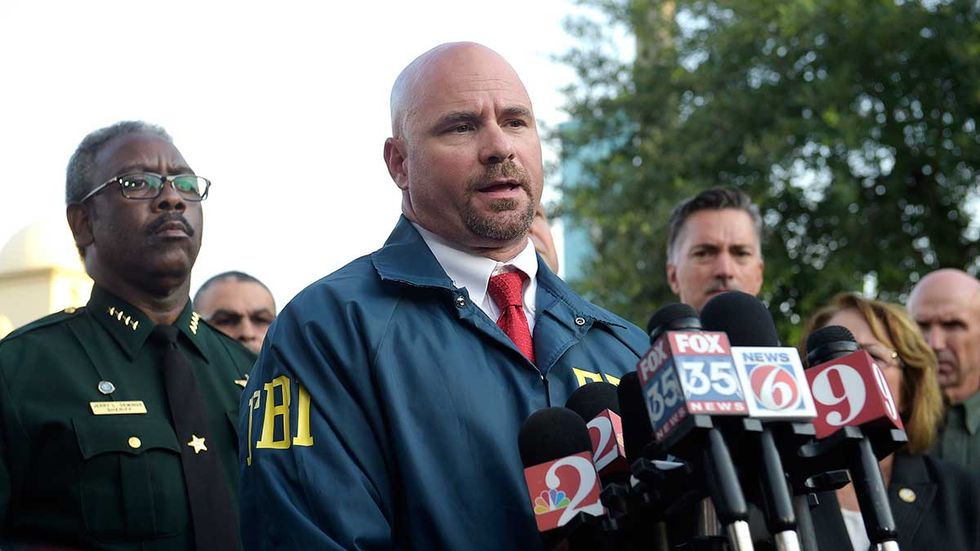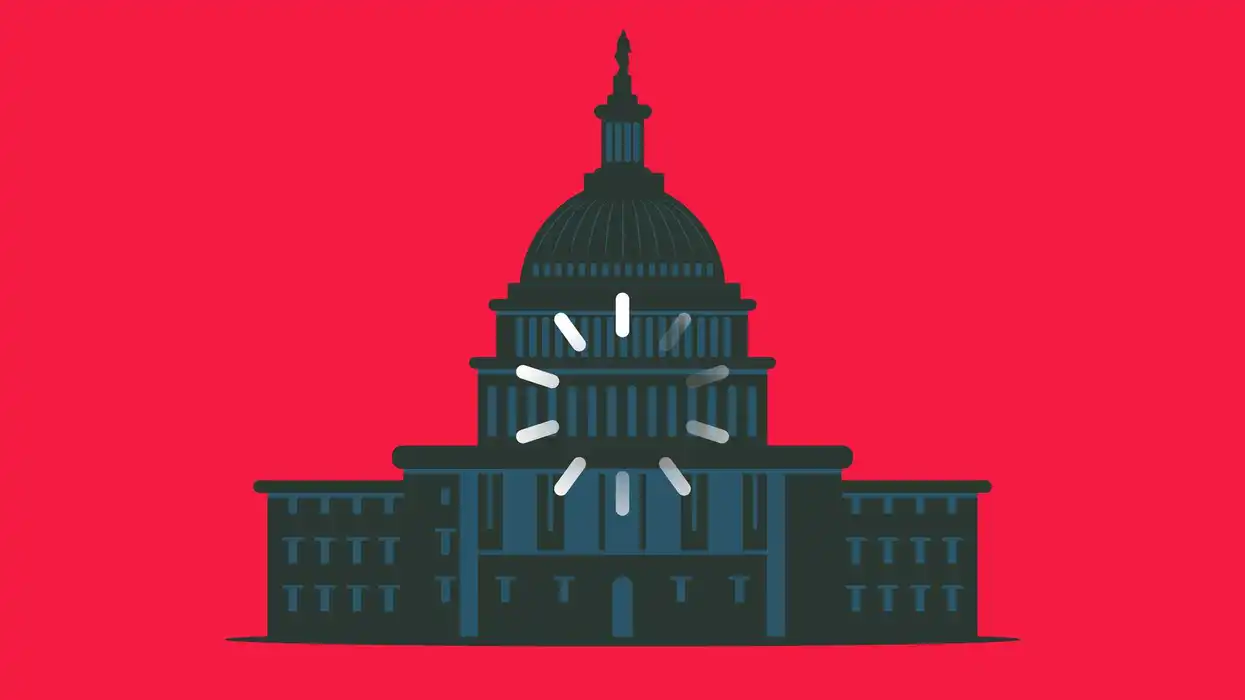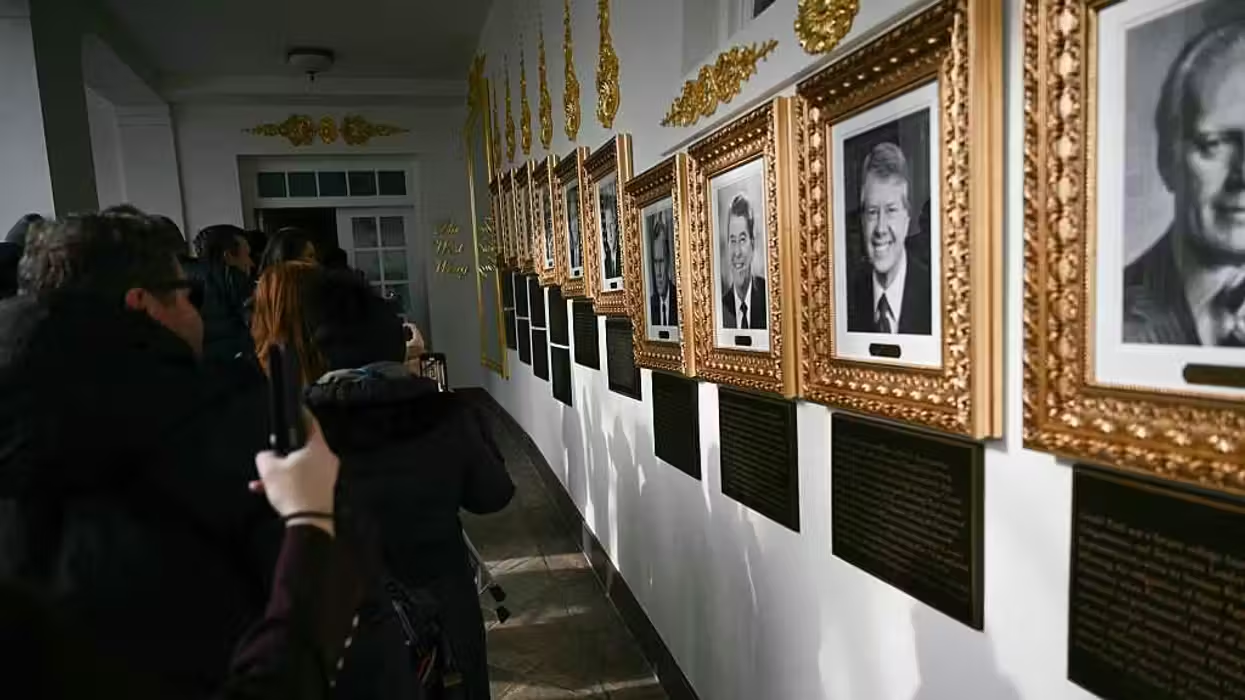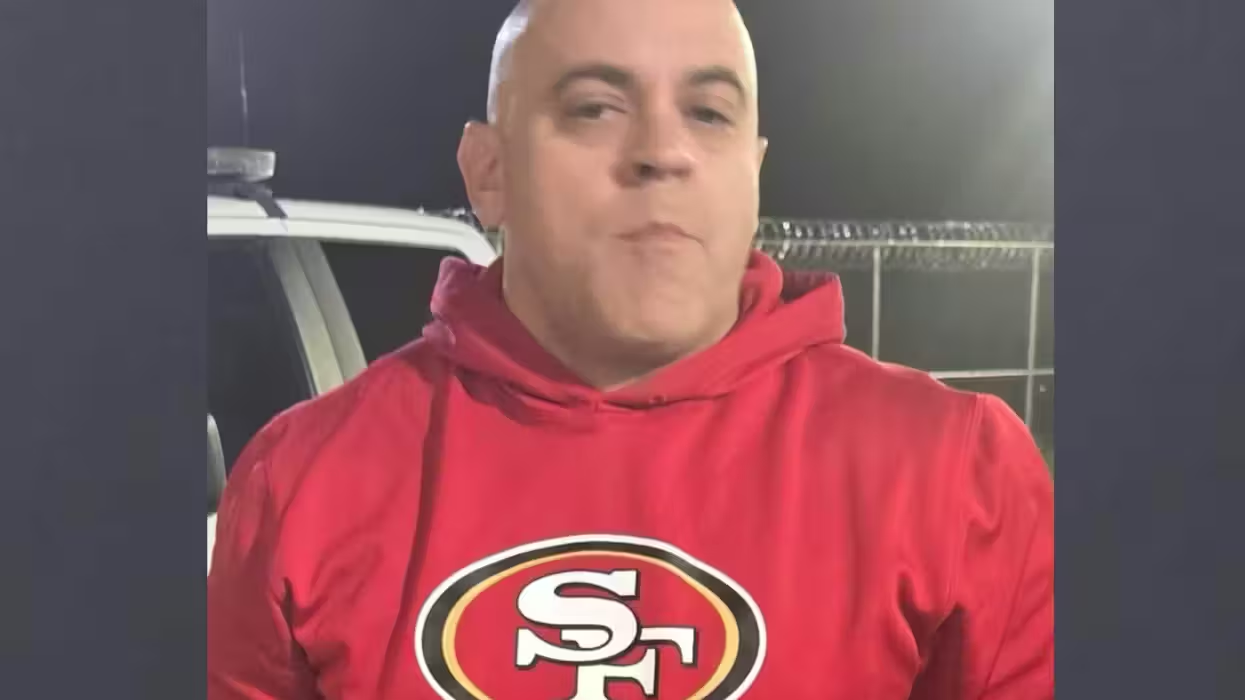
© 2025 Blaze Media LLC. All rights reserved.
Orlando marks the latest in a troubling pattern of jihadist attacks in the United States. Once again, a future terrorist was on the radar of the the Federal Bureau of Investigation. Once again, the bureau closed an investigation into someone that went on to conduct a terrorist attack.
The jihadi who perpetrated the Orlando terrorist attack, Omar Mateen, was investigated twice by the FBI after being reported by his co-workers at G4S, an international security company. The Daily Caller reports that a 2013 investigation was cancelled “after only 10 months because they [the FBI] viewed the terroristic threats he made as a reaction to ‘being marginalized because of his Muslim faith,’ by his coworkers.” According to the report, the FBI ended the investigation because Mateen’s coworkers were deemed racist.
Not only did the FBI end the investigation, it threw no red flags when, in 2013, Mateen passed another law enforcement security clearance. G4S, Matten’s employer, said in a statement:
Omar Mateen was employed by G4S at a residential community in South Florida and was off-duty at the time of the incident. Mateen was subject to detailed company screening when he was recruited in 2007 and re-screened in 2013 with no adverse findings. He was also subject to checks by a U.S. law enforcement agency with no findings reported to G4S.
It seems as if the FBI has not learned from the mistakes of September 11 or later attacks perpetrated on U.S. soil. Here’s a rundown of three incidents, two of which are common knowledge, and one which you may not know about, where the FBI dropped the ball.
Let’s FIGHT BACK together …
… against the mainstream media's biased reporting, selective facts, and outright propaganda. Sign up now for the daily dose of sunlight you need to disinfect the media's lies. It's free!
Zacarias Moussaoui “The 2Oth Hijacker”
Less than a month before the 9/11 attacks, Moussaoui was arrested for violating immigration laws in Minneapolis, MN. This came after a flight school, Pan Am International Flight Academy, alerted the FBI of its suspicions about Moussaoui, because he “only wanted to learn how to take off and land the plane.” Later that month, according to CNN, Minnesota FBI agents were refused permission by the Washington office to search Moussaoui’s computer.
As Peter Bergen writes on page 32 of his new book “The United States of Jihad: Investigating America’s Homegrown Terrorists:
Although Moussaoui was not ‘the twentieth hijacker,’ as was later widely reported, he had received funding from Ramzi Binalshibh, one of the 9/11 coordinators, and by his own account was going to take part in a second wave of al-Qaeda attacks sponsored by Binalshibh.
The FBI agent in Minneapolis who handled Moussaoui’s case believed that he might have been planning to hijack a plane. He was concerned that Moussaoui had traveled to Pakistan, as militants had often used the country as a transit point on the way to terrorist training camps in Afghanistan. On August 23, CIA director George Tenet was told about the case in a briefing titled ‘Islamic Extremist Learns to Fly.’ But FBI headquarters determined there was not sufficient ‘probably cause’ of a crime for the Minneapolis office to conduct a search of Moussaoui’s computer hard drive and belongings. Such a search could have turned up Binalshibh’s phone number.
In the aftermath of 9/11 the government set up a coordinated terrorism task force that was supposed to allow for the sharing of information and end the practices that led to missing the 9/11 clues which could have been uncovered in the Moussaoui arrest. Prior to Orlando, it failed spectacularly on at least two other occasions.
Little Rock Recruiting Office Shooting
On June 1, 2009, American born Abdulhakim Mujahid Muhammad, a black Muslim convert born as Carlos Bledsoe, killed Private William Long and wounded one other in a shooting at a military recruitment office in Little Rock, Arkansas. According to Bergen, Bledsoe grew up in an upper middle class black family in Memphis, Tenn. Bledsoe got into a little trouble, was arrested and received a suspended sentence. At that time he turned to Islam to bring order into his life. Bergen tells the tale of how Bledsoe then became Muhammad, became more radicalized and travelled to Yemen, where he was arrested for falsifying travel documents to get to Africa to wage jihad.
Bergen then reports on the FBI’s involvement. Bledsoe was imprisoned by the Yemeni secret police. He was visited in prison by the FBI. Bergen reports (pages 62 - 63):
Some weeks into Bledsoe’s imprisonment, Nashville-based FBI special agent Greg Thomason traveled to Yemen to interrogate him. The FBI had opened an “assessment” of Bledsoe, which, while not a full-scale investigation, showed that he had caught its attention.
Though Bledsoe insisted to Thomason that he had gone to Yemen only to teach English and learn Arabic, Thomason informed him that he would be deported to the States. When Bledsoe said he didn’t want to go back, the agent told him he had no choice in the matter. Thomason thought that maybe Bledsoe could be turned into a confidential informant for the Bureau, perhaps able to shed some light on the circle of Islamists in Nashville who had provided him with his initial contacts in Yemen.
Bledsoe returned home on January 29, 2009, and was greeted by his family. He tried to hide his radical tendencies. Later that year, Bledsoe showed up for a follow up meeting with Thomason.
Following instructions to report to the FBI, Bledsoe met again with Thomason, who tried to recruit him as an informant. When Bledsoe refused, the FBI stopped tracking him. This decision is hard to reconcile with the information the Bureau had at the time. After all, Bledsoe had just been arrested in Yemen with a fake Somali identification care, jihadist literature and manuals on bomb making and guns. Perhaps this information was not properly communicated by the Yemeni intelligence service, but even so, Bledsoe’s long stay in Yemen and his arrest should have been enough to raise concerns about what he might do next. Michael Leiter, director of the NCTC [National Counter-Terrorism Center], believes that the FBI committed an unequivocal error by not apprising the rest of the intelligence community about its information on Bledsoe. “There should have been broad dissemination on this,” he later said.
A little over four months after returning to the U.S., Bledsoe carried out his terrorist attack.
The Boston Bomber, Tamerlan Tsarnaev
On April 16, 2013, the finish line at the Boston Marathon was bombed. Three people were killed and hundreds of others were injured. It is now known that the bombing was planned and perpetrated by Tamerlan Tsarnaev and his brother Dzhokar. Both were refugees from the Caucusus region of the Former Soviet Union. Tamerlan had returned to his homeland and became radicalized. The FBI was alerted by the Russian FSB.
The Washington Post reported:
According to an FBI news release issued Friday night, a foreign government said that based on its information, Tsarnaev was a strong believer and that he had changed drastically since 2010 as he prepared to leave the U.S. for travel to the Russian region to join unspecified underground groups.
The FBI did not name the foreign government, but the two law enforcement officials identified the FSB as the provider of the information to one of the FBI’s field offices and also to FBI headquarters in Washington. The two officials spoke on condition of anonymity because they were not authorized to speak on the record about the matter.
The FBI said that in response, it interviewed Tsarnaev and relatives, and did not find any domestic or foreign terrorism activity. The FBI said it provided the results in the summer of 2011. The FBI also said that it requested but did not receive more specific or additional information from the foreign government.
After the FSB warned the FBI about Tamerlan Tsarnaev, and less than two years after they concluded he was not a threat, Tsarnaev carried out the Boston Marathon attacks after radicalizing his brother.
There is a troubling pattern of the FBI knowing about terrorists, and doing very little to keep tabs on them or stop them. In the aftermath of Orlando, perhaps enough pressure will be placed on the bureau to take these threats more seriously.
Want to leave a tip?
We answer to you. Help keep our content free of advertisers and big tech censorship by leaving a tip today.
Want to join the conversation?
Already a subscriber?
Rob Eno is the managing editor of Blaze News. He is from Massachusetts and now resides in the freedom of Texas.
Rob Eno
Rob Eno is the managing editor of Blaze News. He is from Massachusetts and now resides in the freedom of Texas.
more stories
Sign up for the Blaze newsletter
By signing up, you agree to our Privacy Policy and Terms of Use, and agree to receive content that may sometimes include advertisements. You may opt out at any time.
Related Content
© 2025 Blaze Media LLC. All rights reserved.
Get the stories that matter most delivered directly to your inbox.
By signing up, you agree to our Privacy Policy and Terms of Use, and agree to receive content that may sometimes include advertisements. You may opt out at any time.






